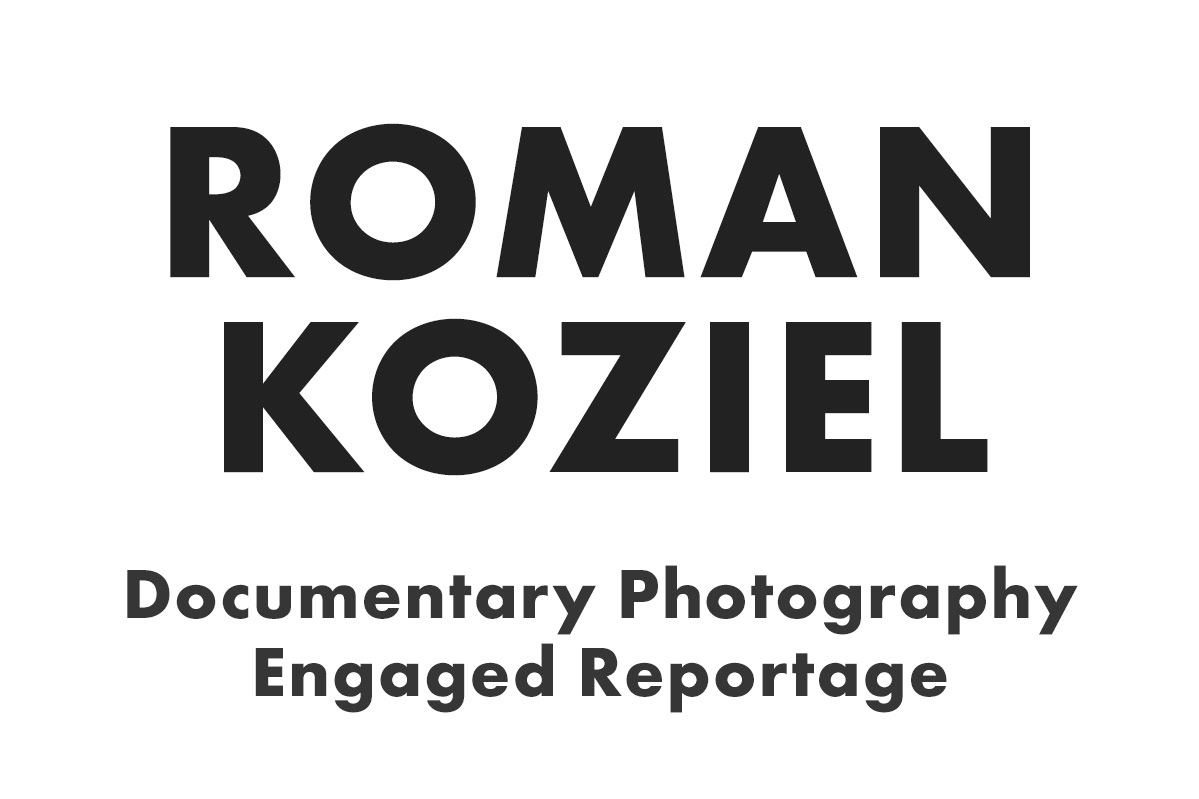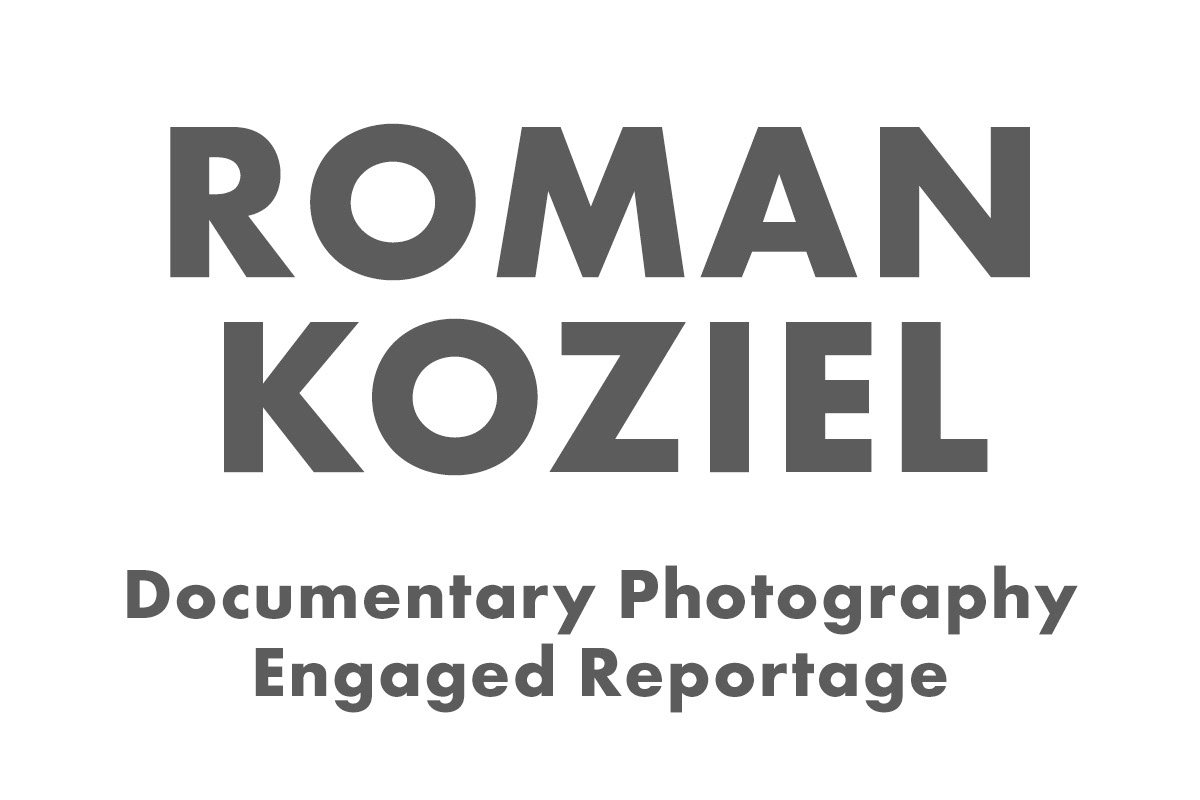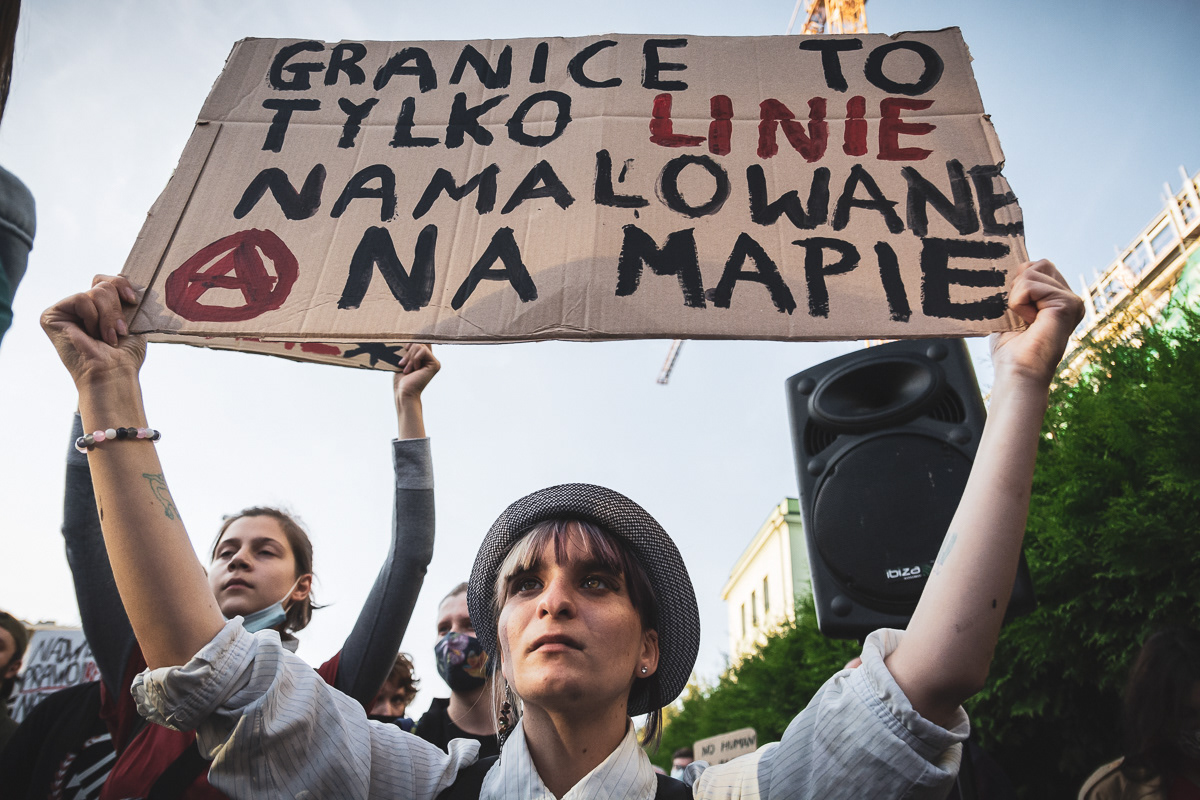
"Borders are just lines drawn on a map"

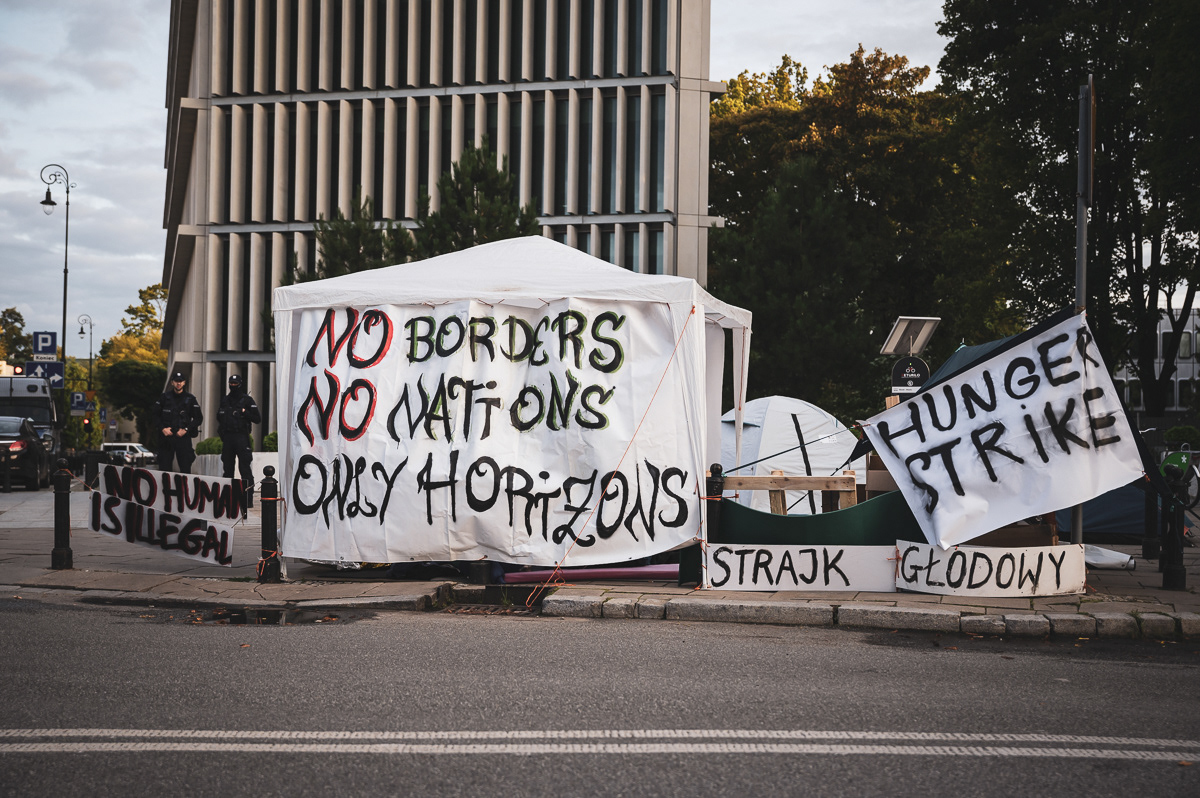
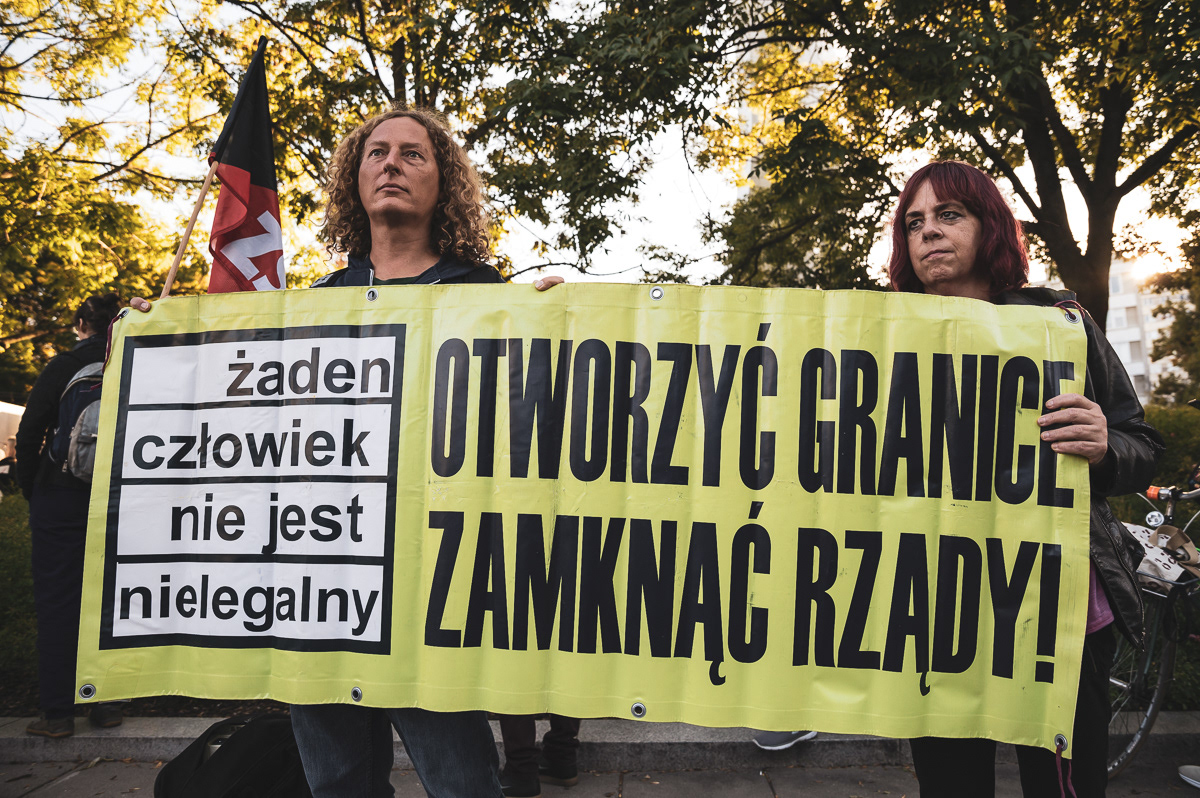
"No human is illegal, open the borders, close the government"
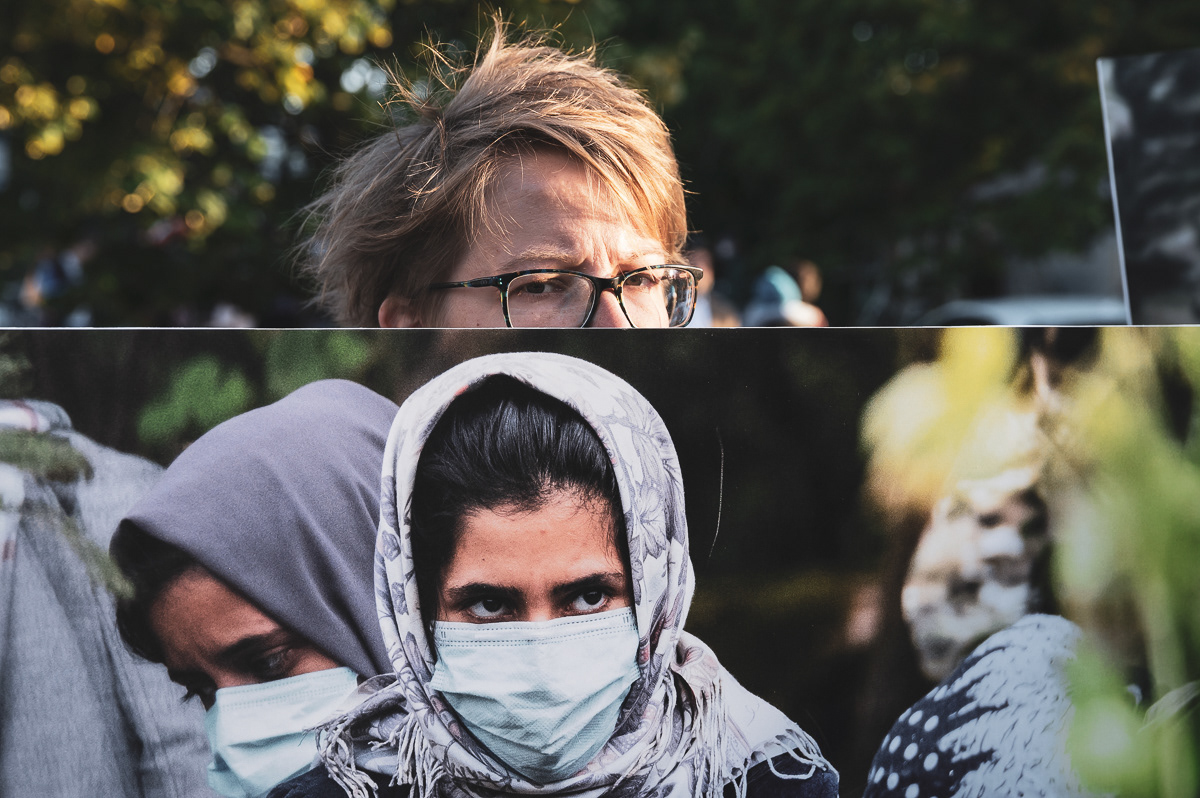
!["They [refugees trapped on the border] will die"](https://cdn.myportfolio.com/8258b37e-c8ca-46fa-a125-b7e45be074bb/7105f229-782d-446d-b9f8-a86f99bf5029_rw_1200.jpg?h=60fd4dbc21aac3c3069d1333757c9655)
"They [refugees trapped on the border] will die"
!["You [border guards] have blood on your hands"](https://cdn.myportfolio.com/8258b37e-c8ca-46fa-a125-b7e45be074bb/fdb6a263-0f0d-4a94-8169-3b3458d9bc23_rw_1200.jpg?h=a6fcd9ce4e6282132eab3dce8c4f9d21)
"You [border guards] have blood on your hands"
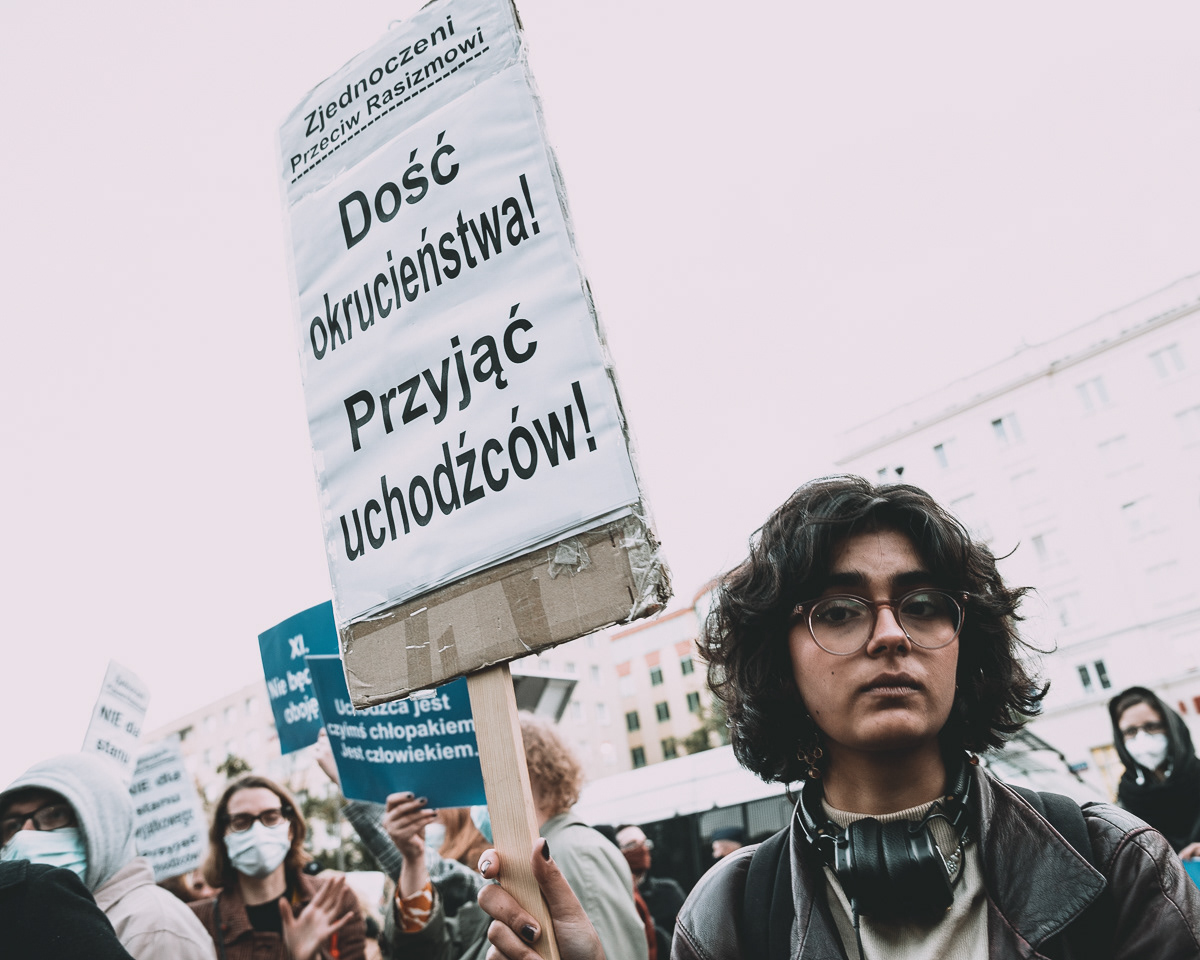
"Enough cruelty! Accept the refugees!"

"Murderers"
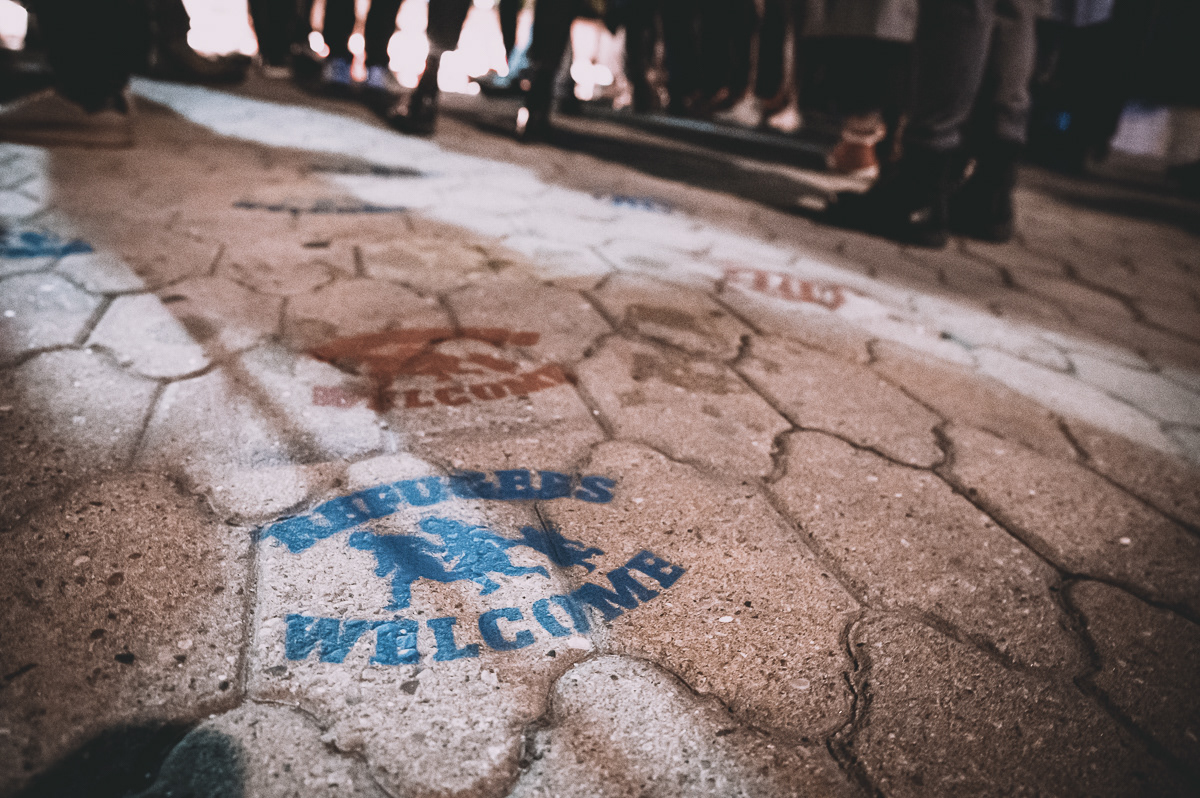
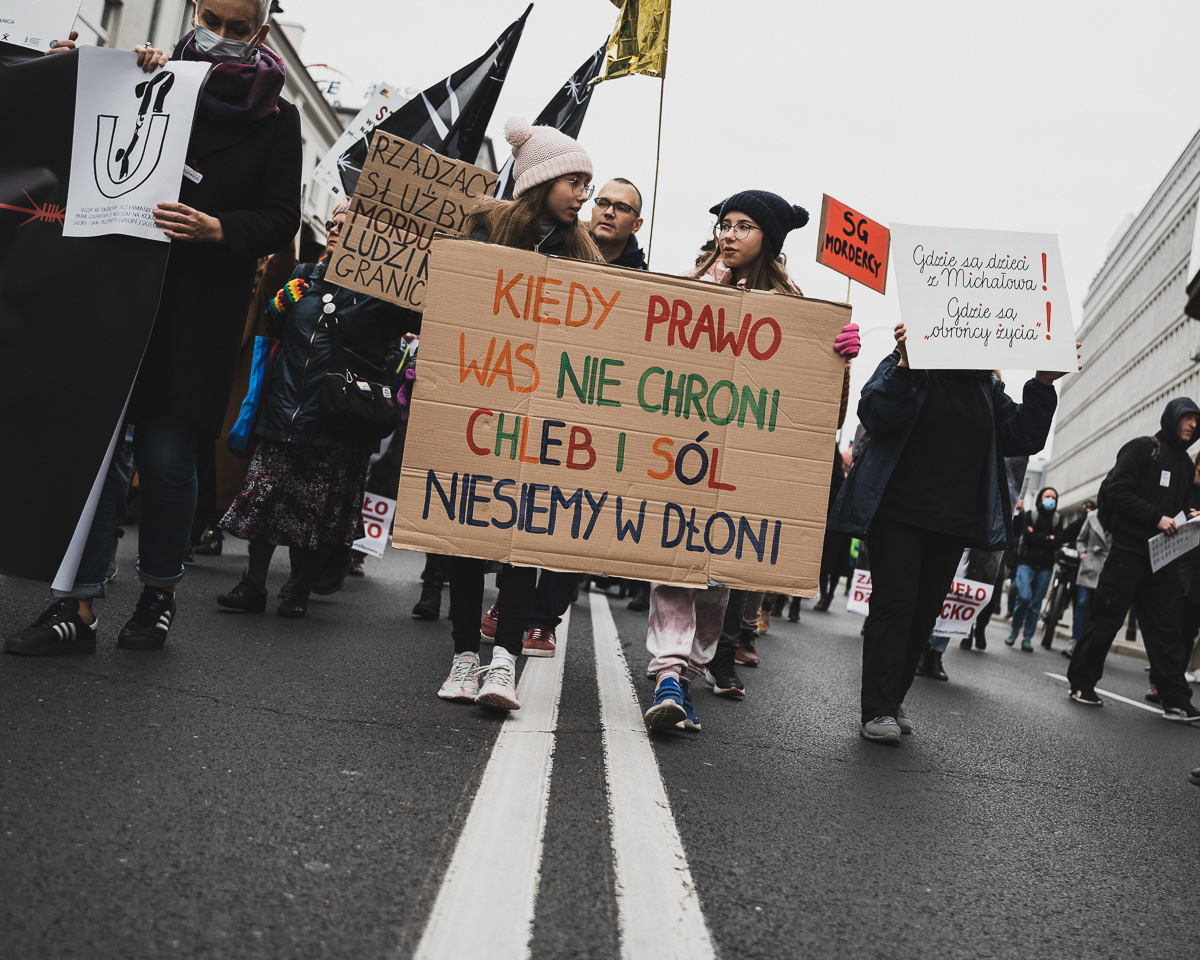
"When the law does not protect you, we carry bread and salt in our hands"

"Your dignity?"
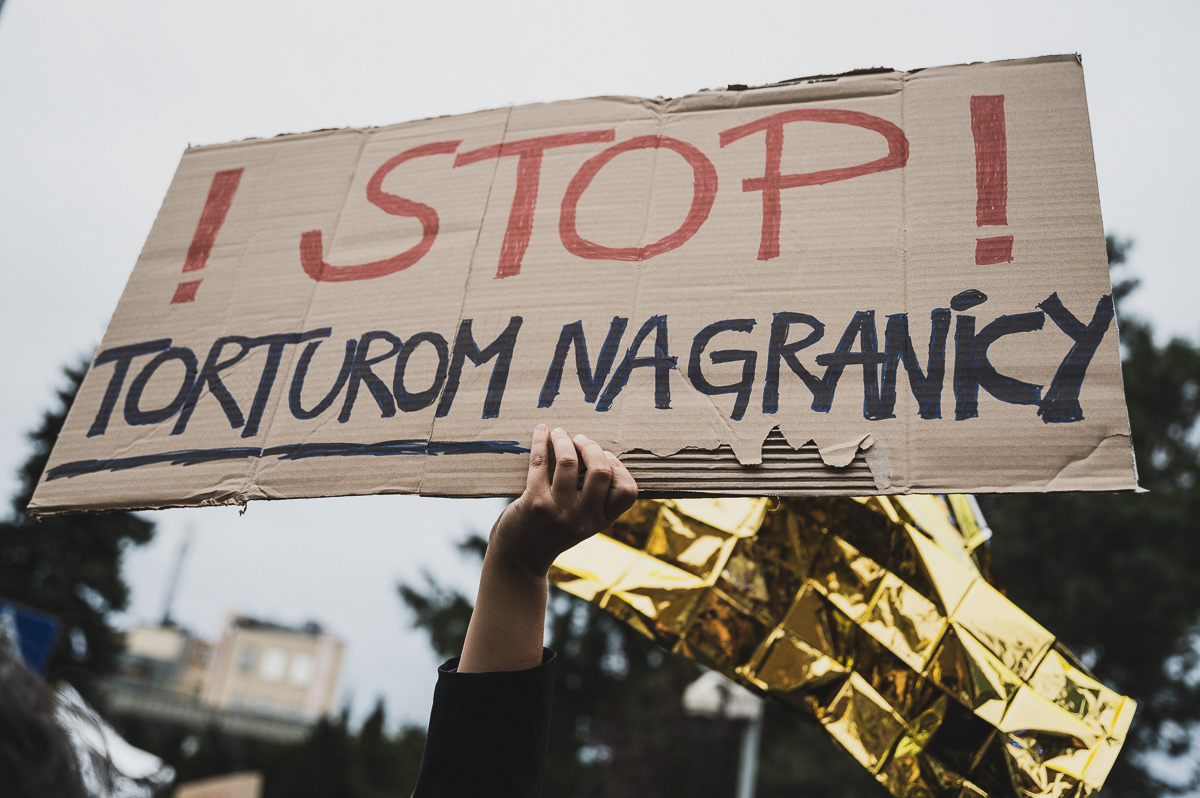
"Stop the tortures on the border"

"Humanitarian intervention on the border now! Stop the illegal pushbacks!"
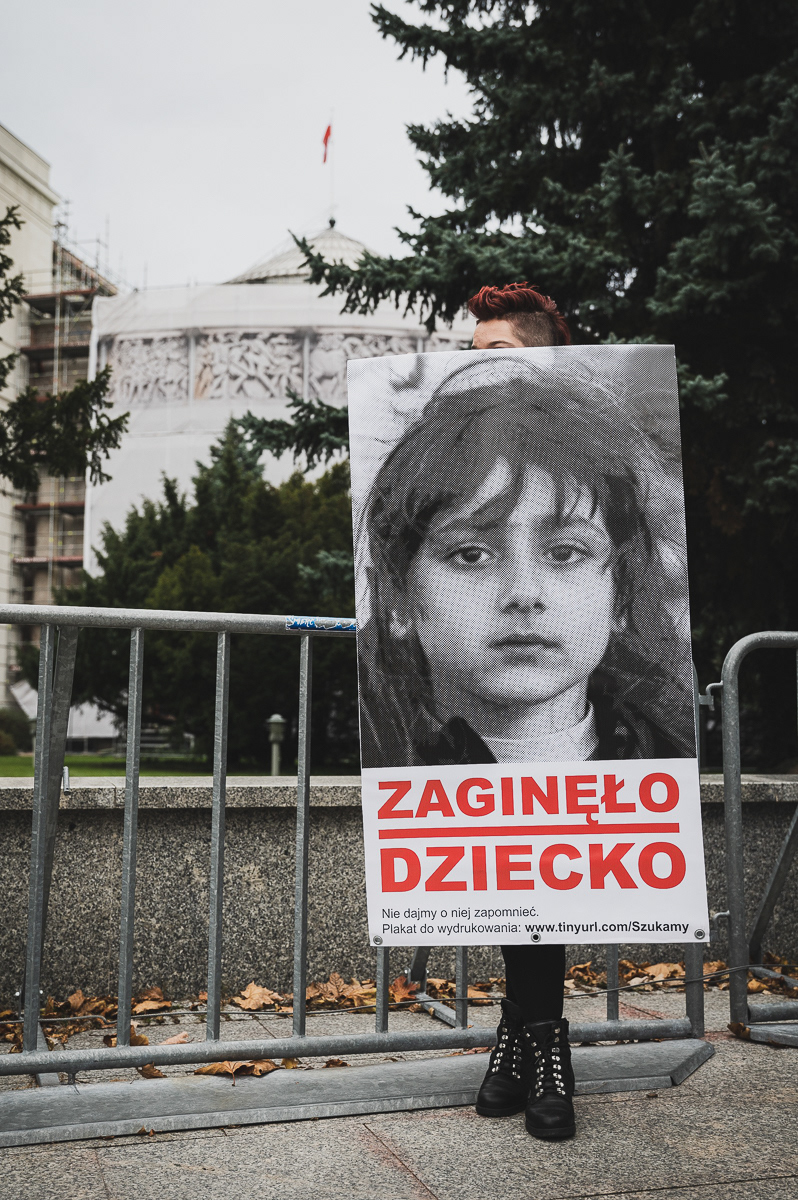
"A child has gone missing"

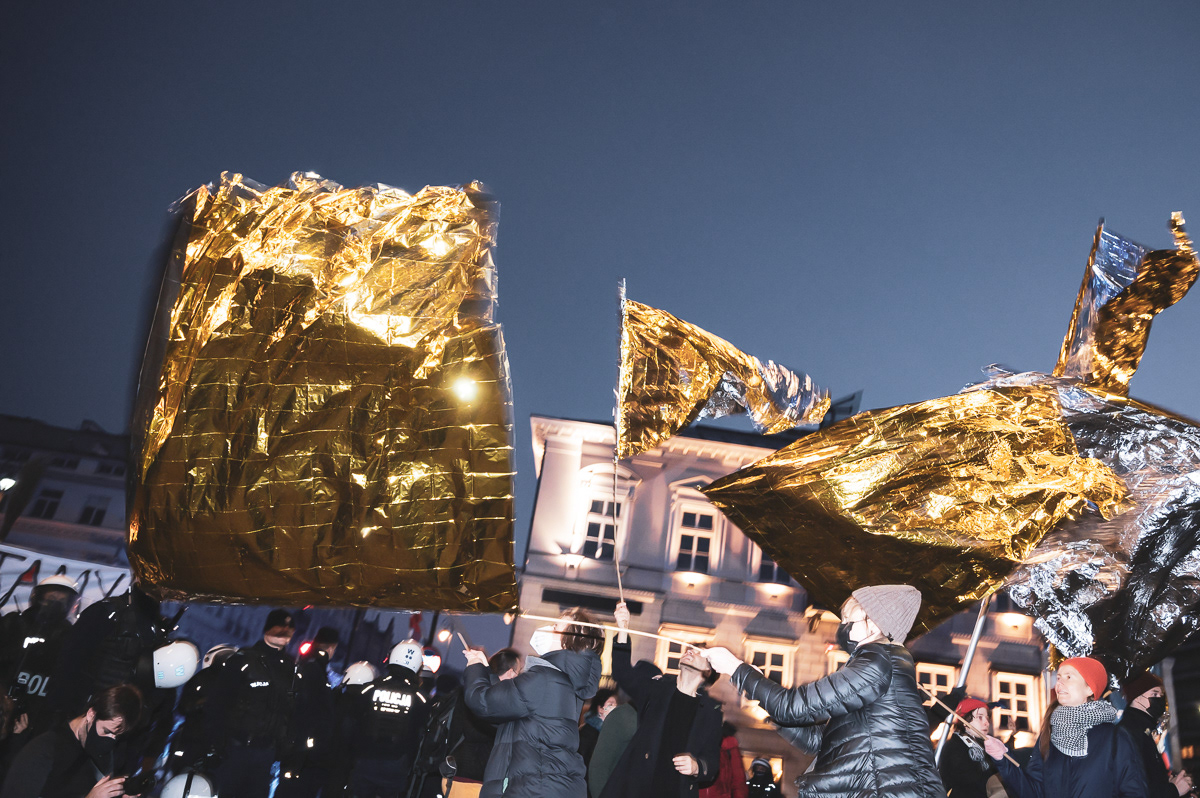
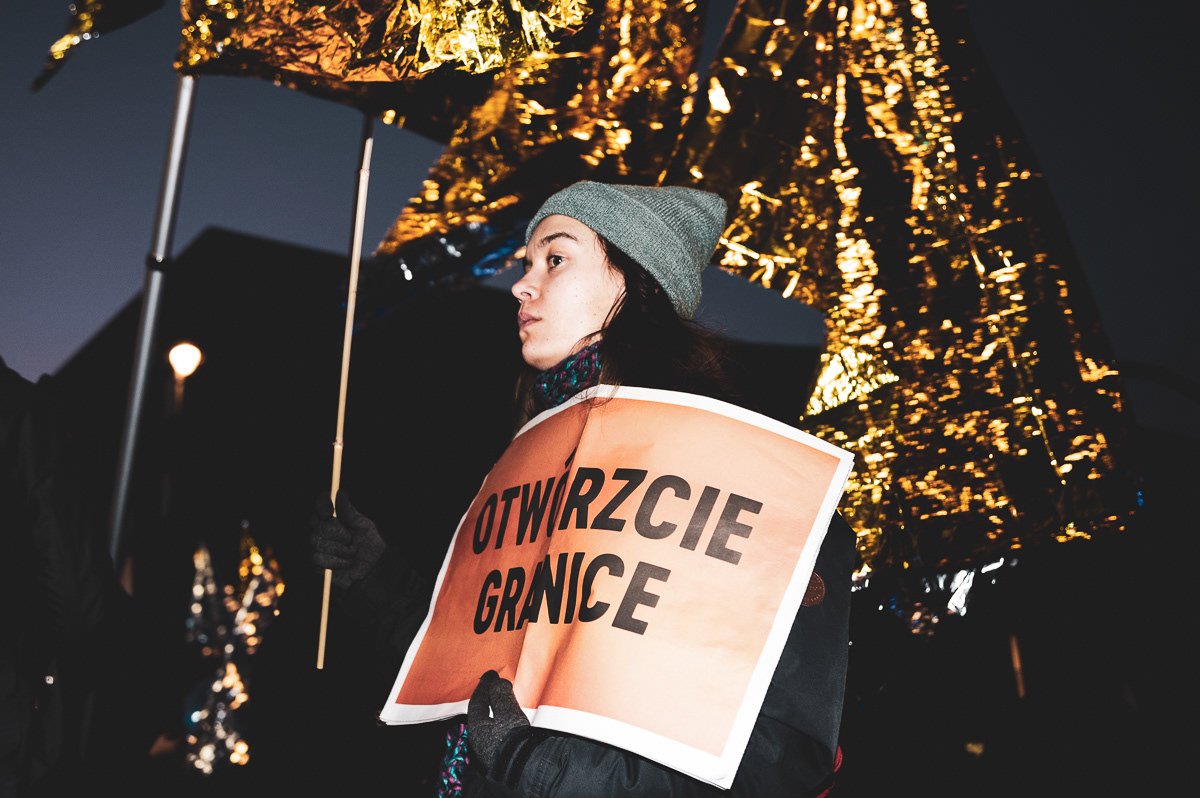
"Open the borders"

"You have blood on your hands"
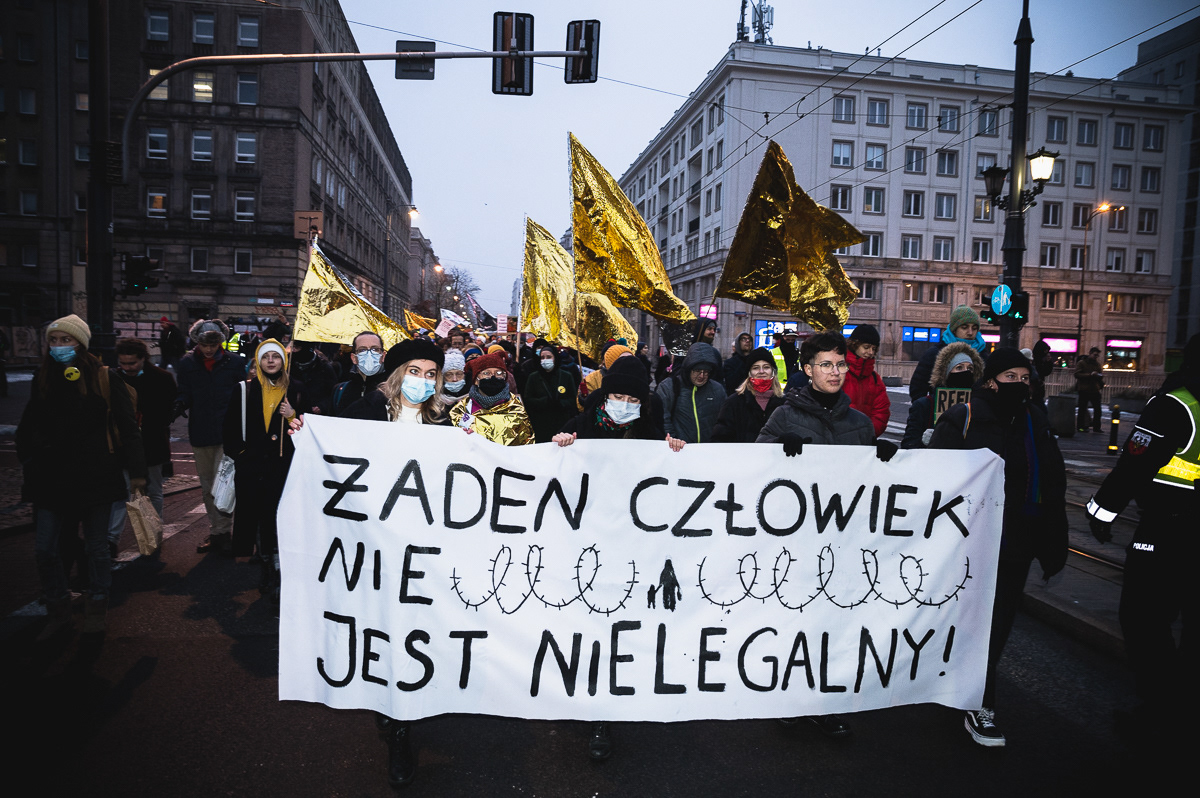
"No human is illegal"
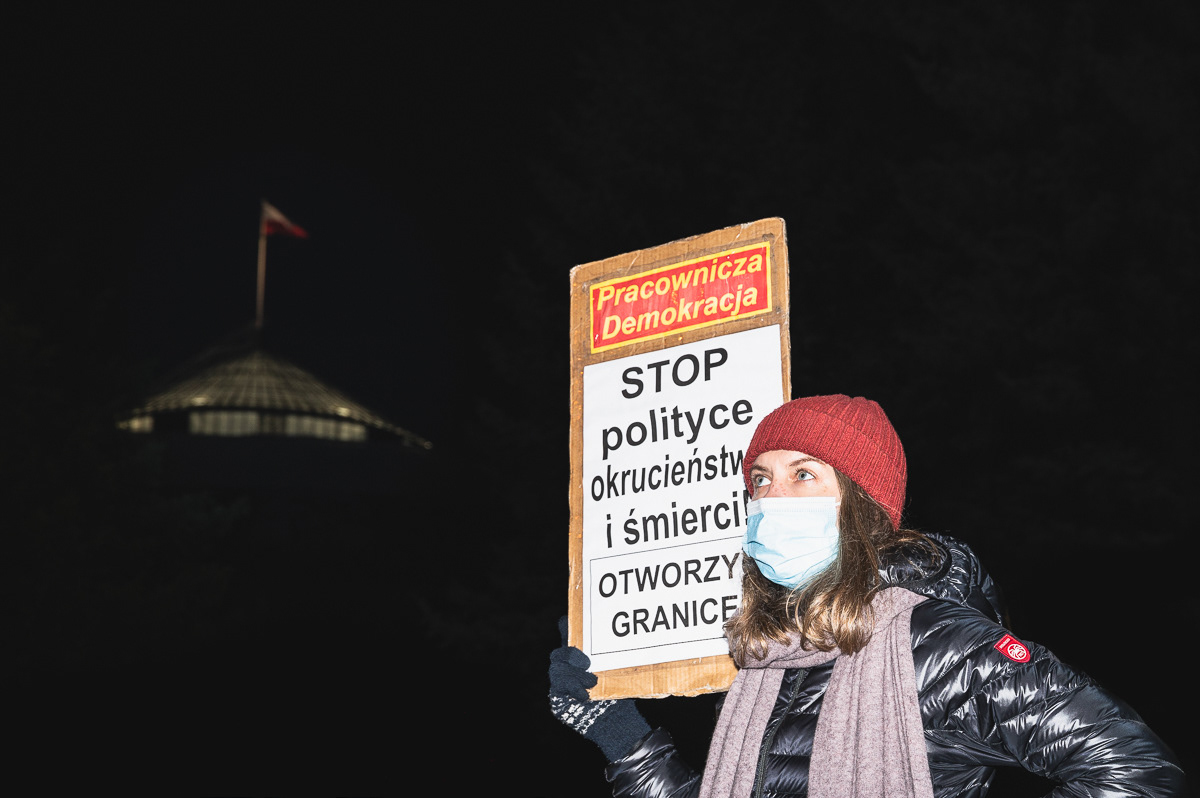
"Stop the politics of cruelty and death, open the borders"
!["Where is Eileen [a missing refugee]"](https://cdn.myportfolio.com/8258b37e-c8ca-46fa-a125-b7e45be074bb/3cf08a81-43a7-4d98-8db2-e84808f1977f_rw_1200.jpg?h=a223901fbc19a0ed7759875d7ea4a859)
"Where is Eileen [a missing refugee]"
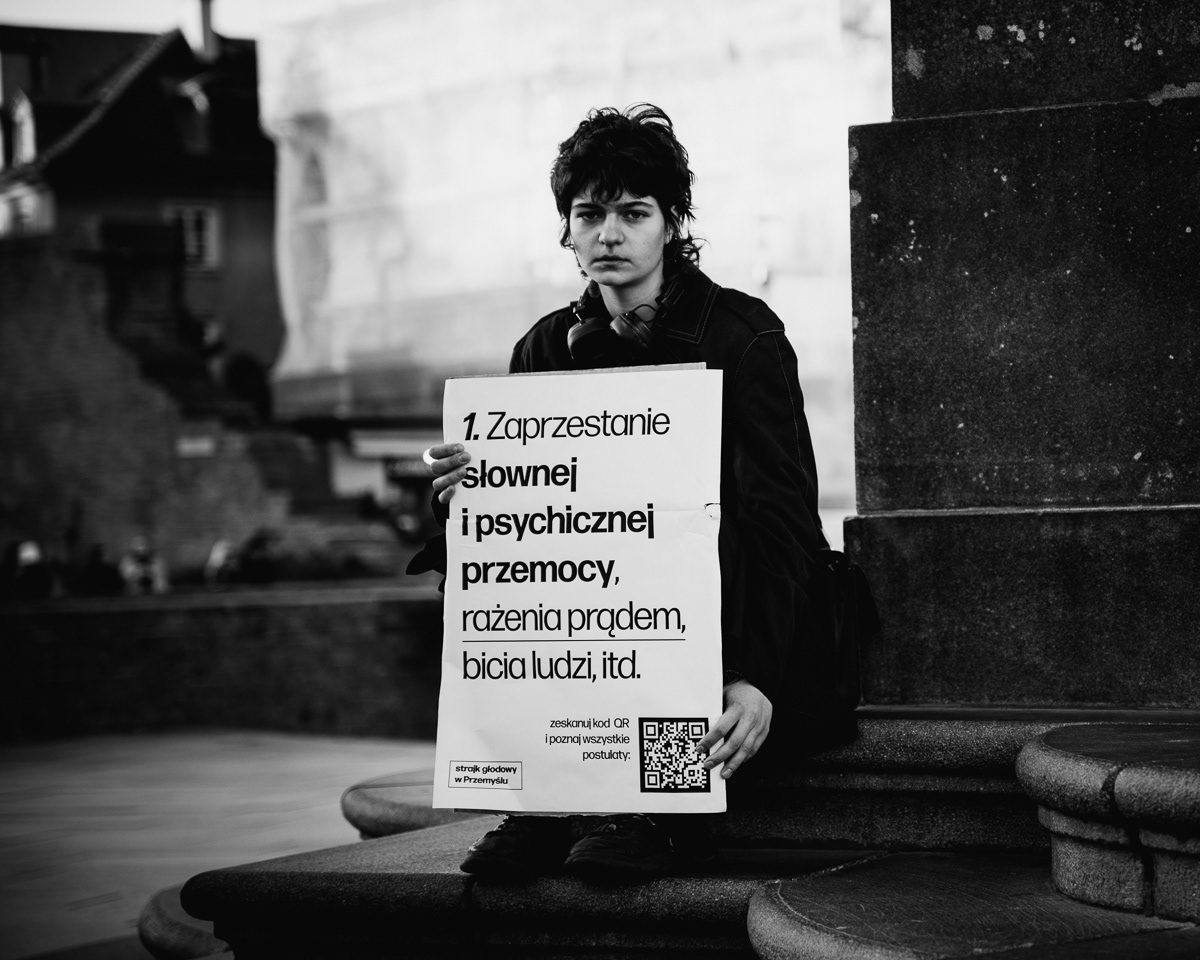
"Cessation of verbal and psychological violence, electrical shocks, beating people, etc." - 1st demand of refugees on hunger strike in a Guarded Detention Center for Foreigners in the city of Przemyśl

Demands of refugees on hunger strike in a Guarded Detention Center for Foreigners in the city of Przemyśl: "Cover the forced travel costs"; "Stop deportations"; "Access to Polish language and integration classes"; "Give us the full contents of packages that we receive and do not throw away any of the contents"; "Increase the shopping allowance, 100 PLN per month is not enough"; "Treat the detained with respect, stop using numbers instead of names"

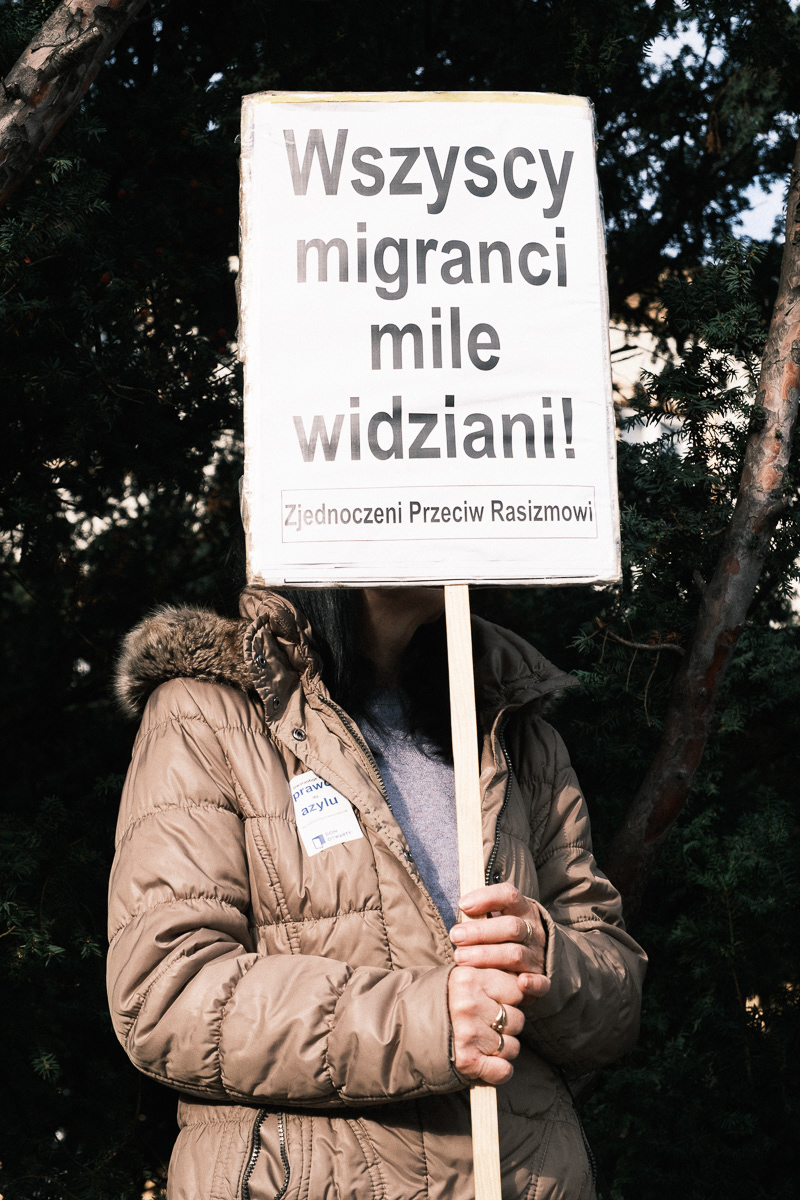
"All refugees welcome"
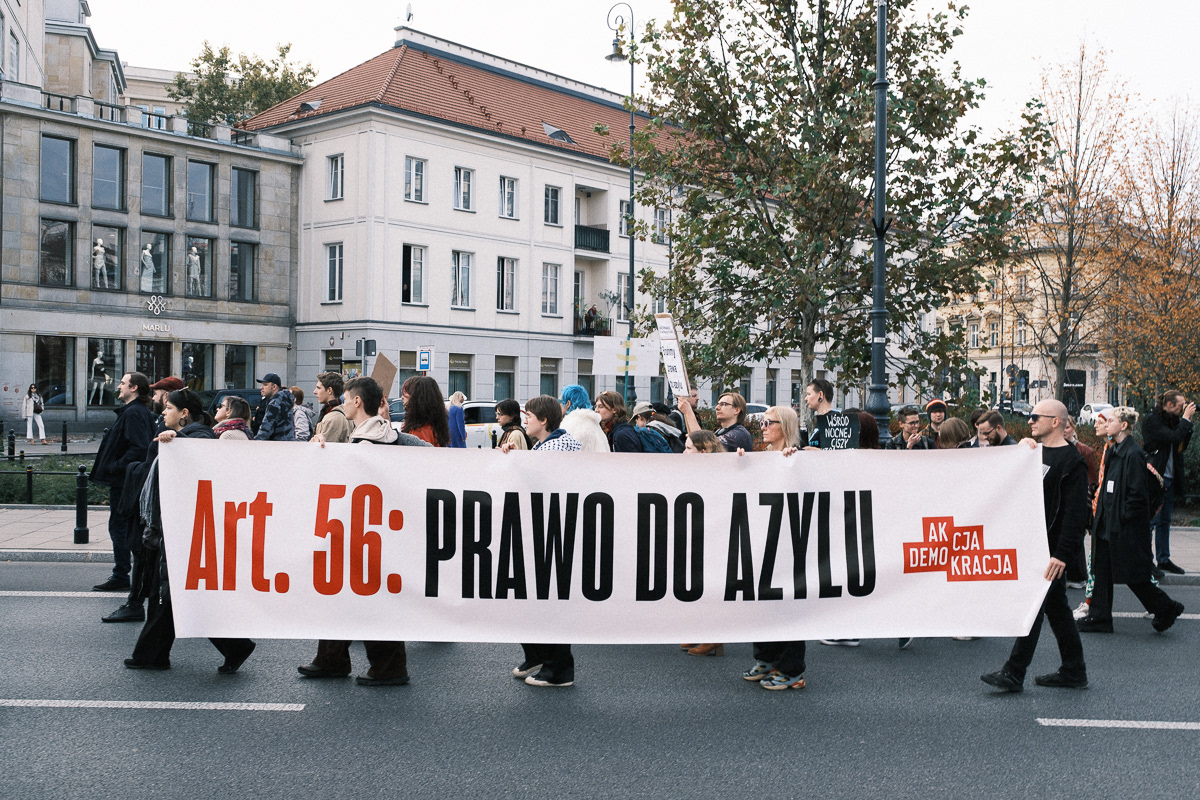
"Article 65 [of the Polish constitution: the right to asylum"
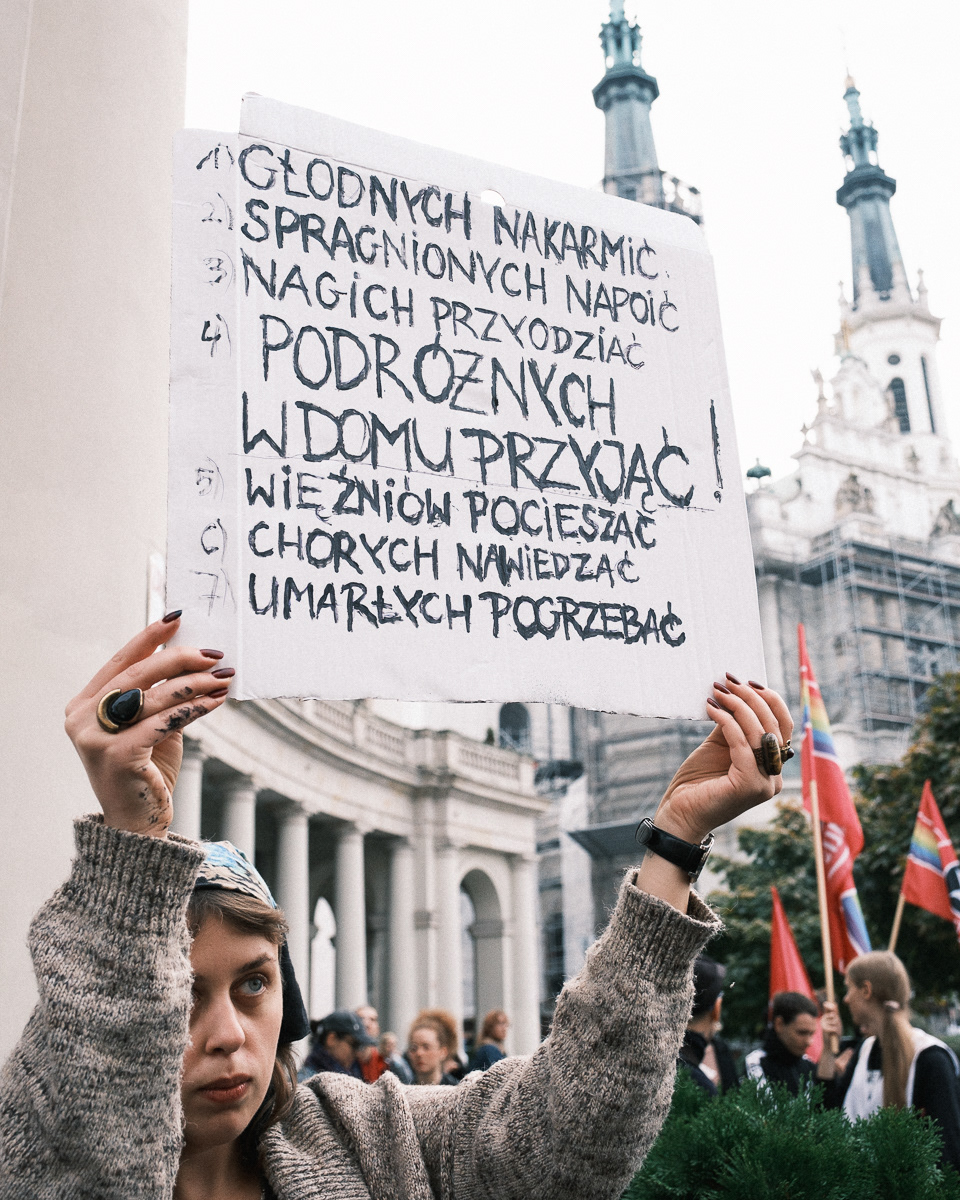
"1) Feed the hungry; 2) Give drink ot the thirsty; 3) Clothe the naked; 4) Shelter travellers; 5) Console the imprisoned; 6) Visit the sick; 7) Bury the dead"
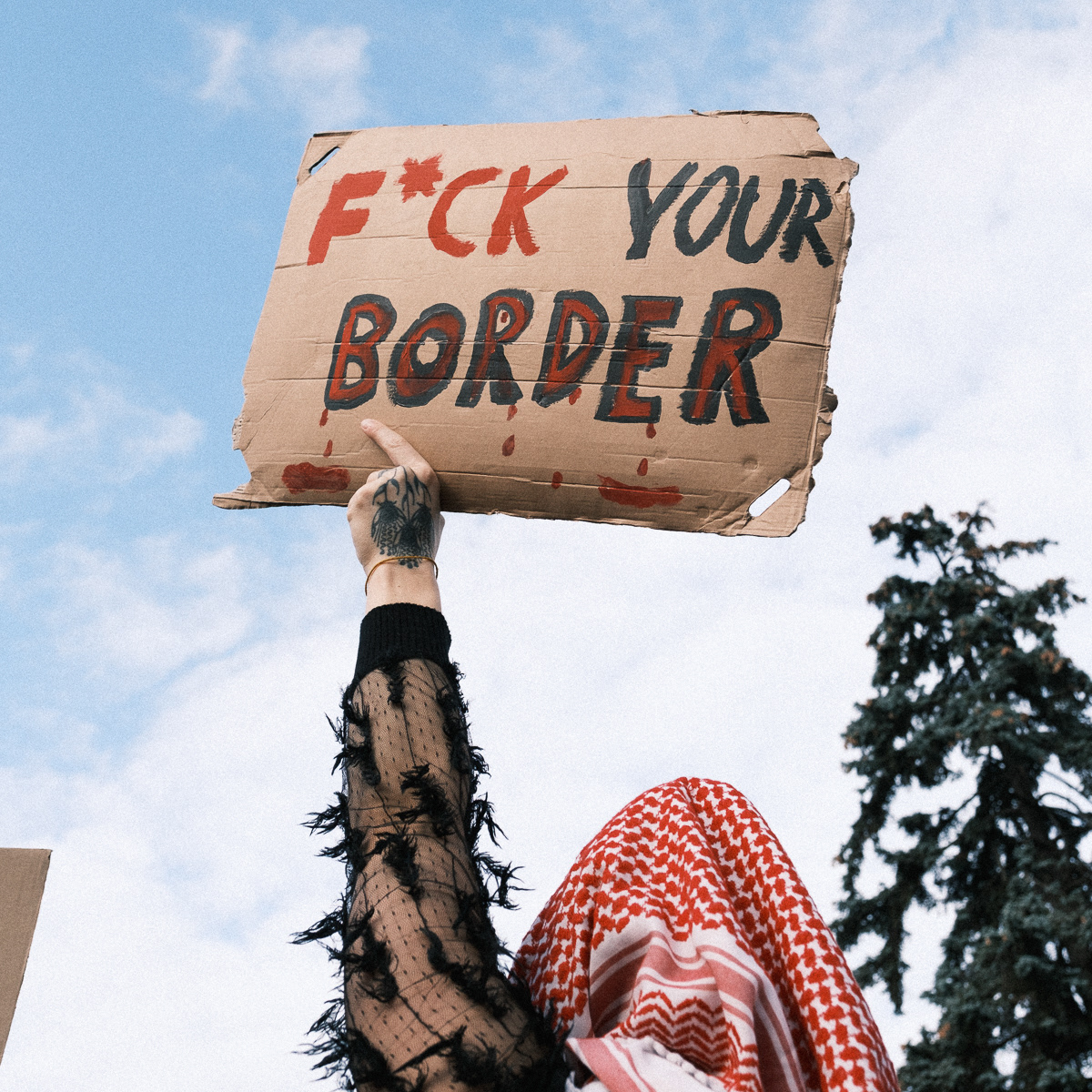
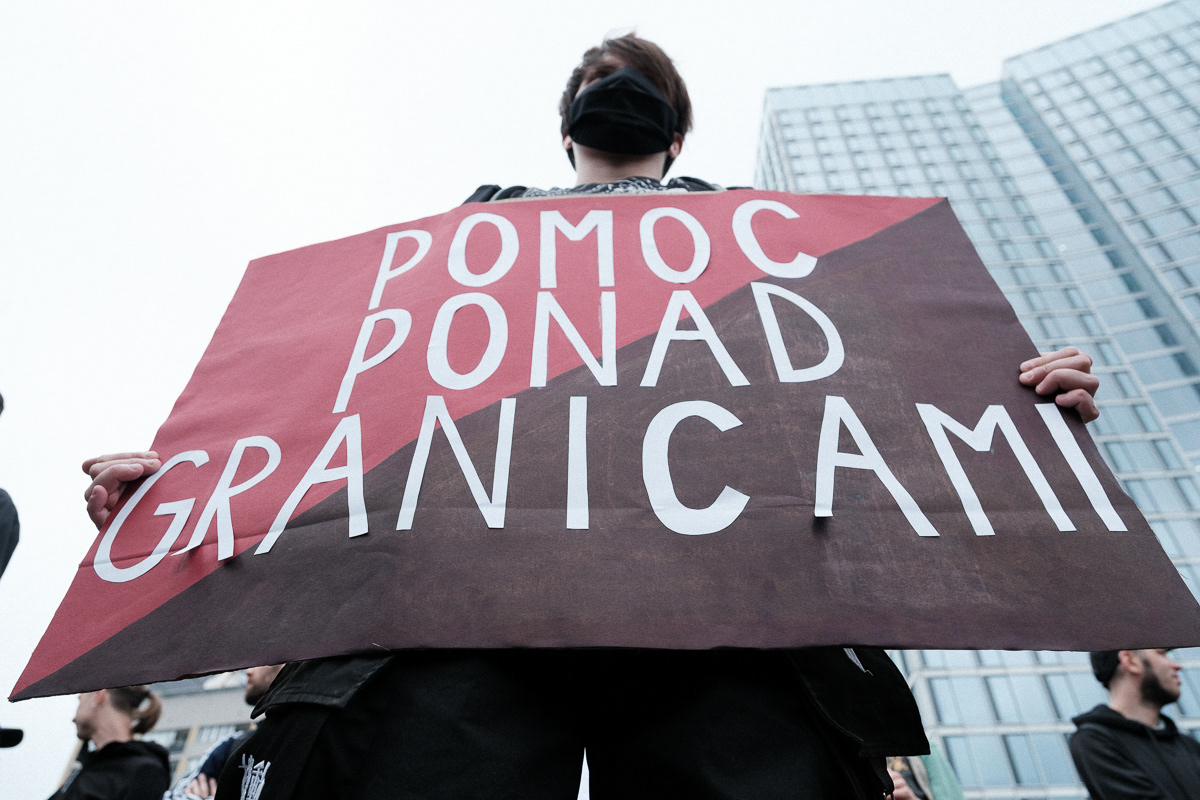
"Help beyond borders"
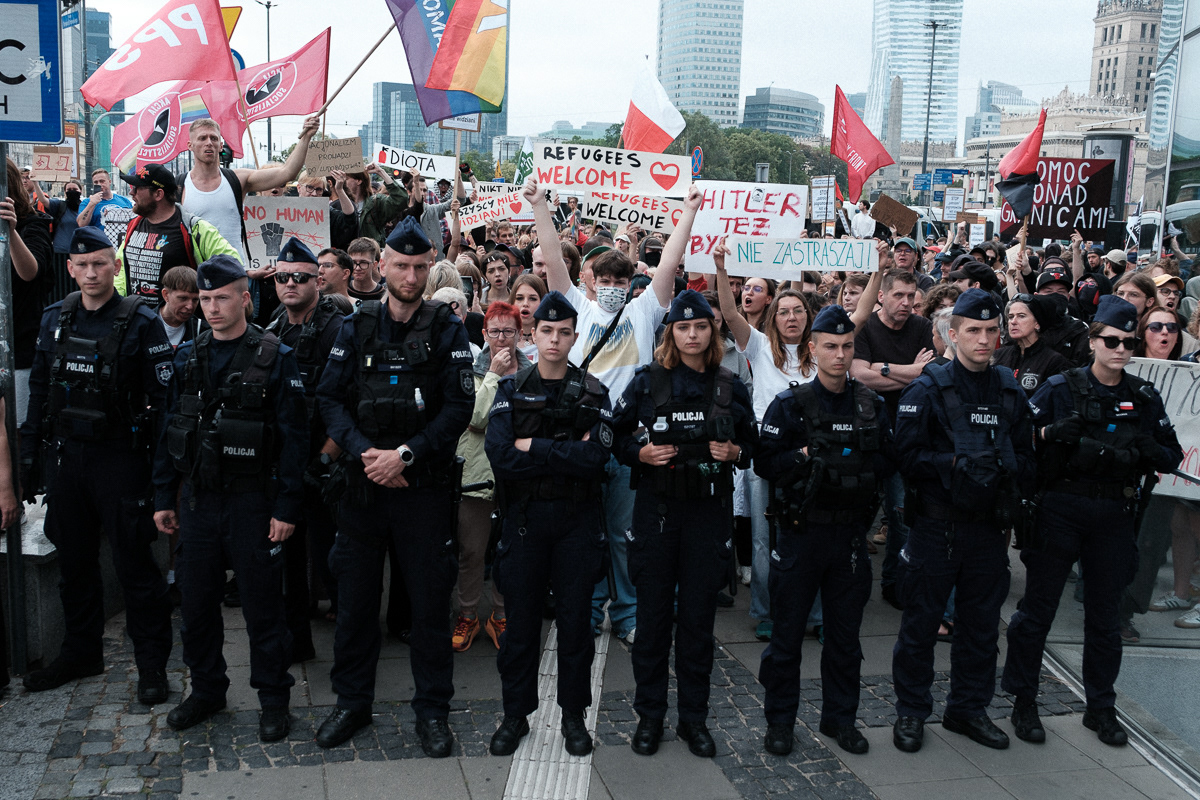
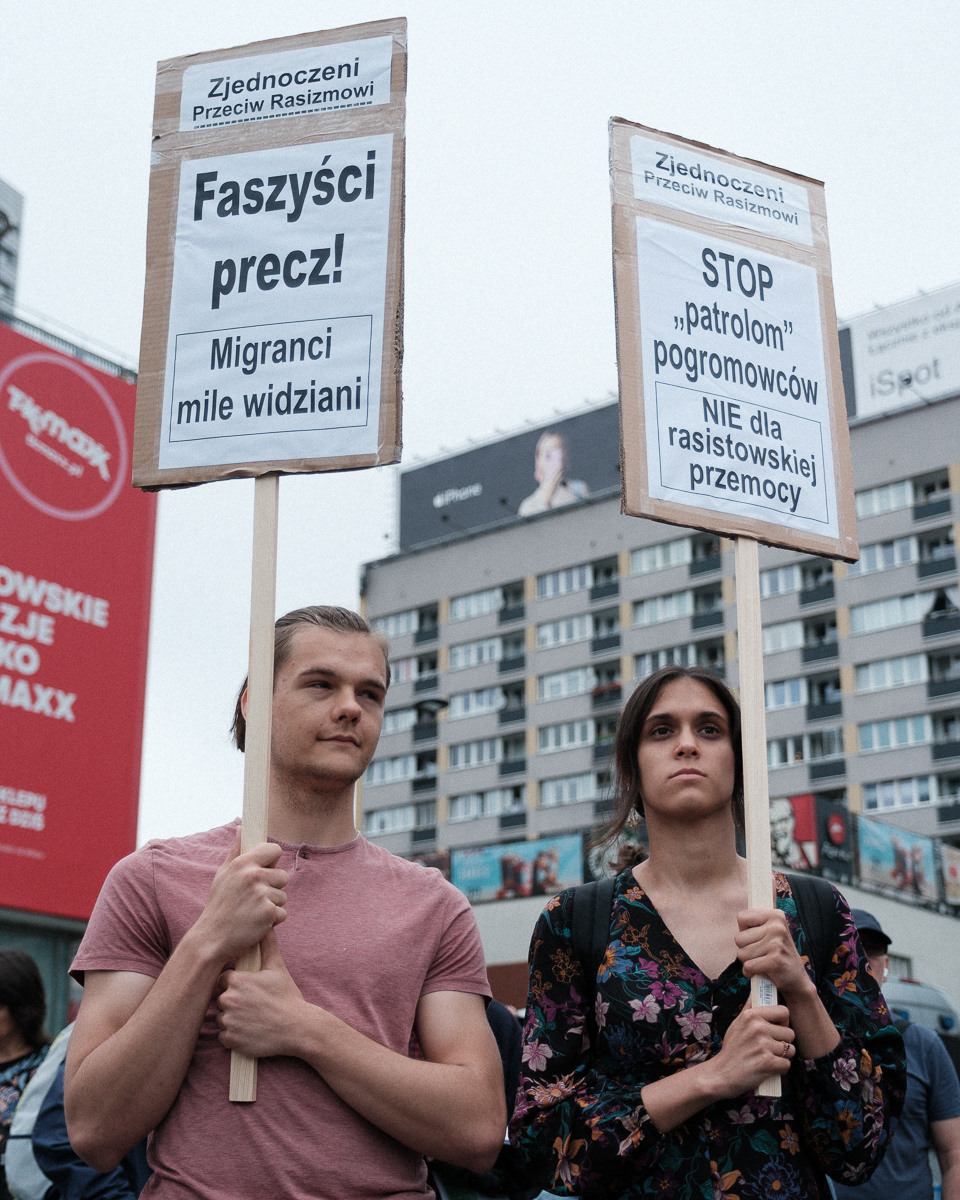
Left: "Fascists out! Refugees welcome!"; Right: "Stop the pogrom 'patrols', no to racist violence''
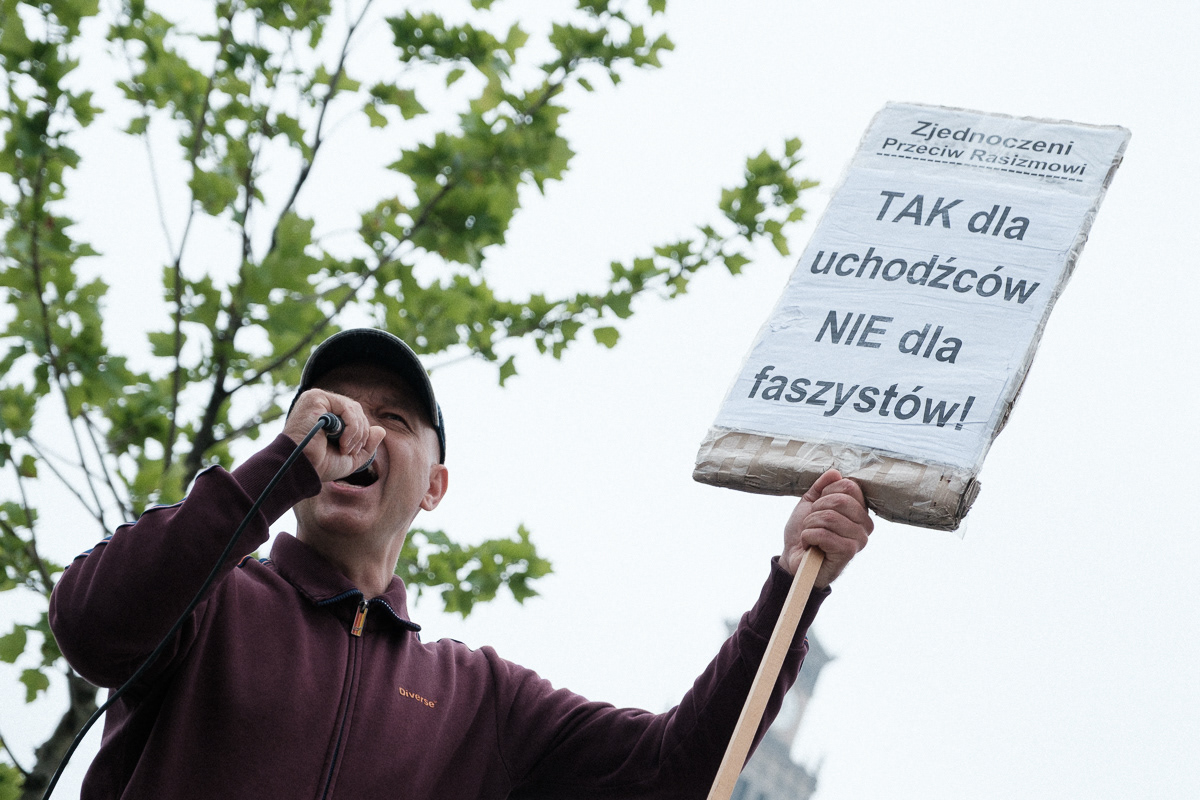
''Yes to refugees, no to fascists''
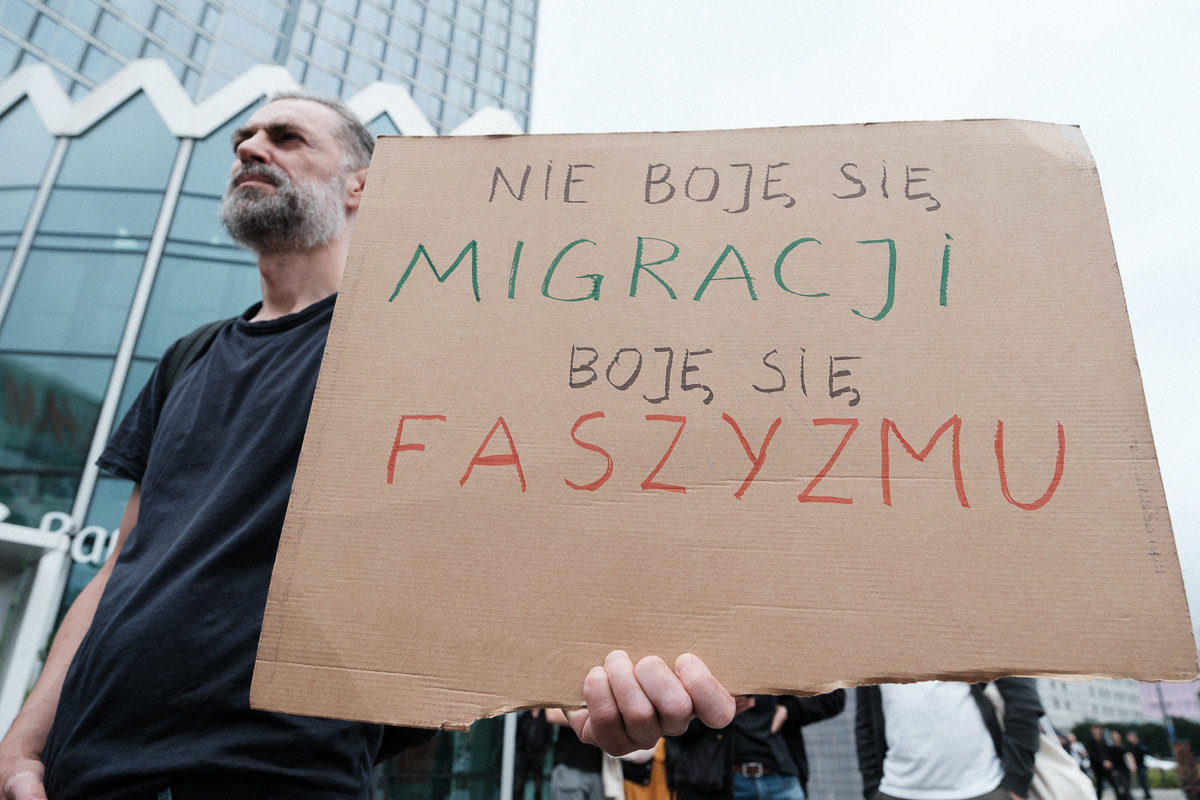
''I'm not afraid of migration, I'm afraid of fascism''
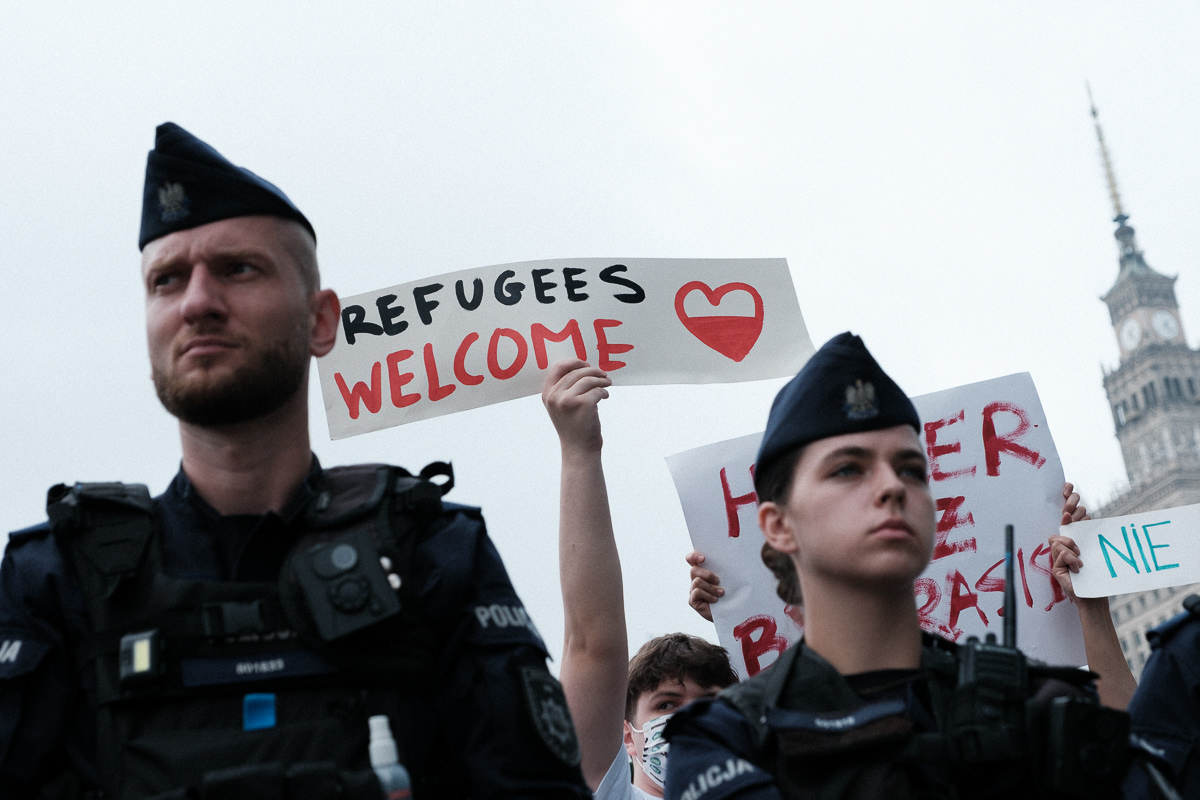
During the summer of 2021 an increasing number of refugees, primarily from the Middle East and Africa, began appearing on the Polish-Belarusian border, seeking asylum in Poland and hoping to enter the EU. Taken advantage of by Belarusian authorities aiming to provoke a crisis on the EU's eastern border, the refugees found themselves stuck in a no-man's-land between Belarusian and Polish border guards. The then PiS-controlled government responded to the crisis by declaring a state of emergency, strongly limiting the movement of journalists and humanitarian groups in the border regions, sending the military to the border, and pushing back refugees into Belarus - illegal under international law.
While many activists rushed to the border to provide humanitarian aid and assistance, activist groups and individuals in Warsaw organized a number of solidarity demonstrations in response to the humanitarian crisis. Since 2021, a 5.5 meters tall, 187 kilometers long border fence has been constructed along the border, although thousands of crossings are still attempted to this day. As of 2024, the policy of illegal pushbacks and limiting the movement of journalists and human rights activists is still in effect, despite a change of government following the victory of the KO-led coalition in the October 2023 parliamentary elections. Furthermore, in October 2024 Prime Minister Donald Tusk announced plans to temporarily suspend the right to asylum, in direct violation of article 56 of the Polish constitution, sparking further protests by human rights activists. The law was subsequently passed by parliament.
Antimigrant hysteria in Poland, spurned on by far-right propaganda and manipulation, had reached a fever pitch over the spring and summer of 2025, many describing the national mood as pre-pogrom. Xenophobic antimigrant rallies were organized nationwide by far-right political parties and met with counter demonstrations. One such counter protest in Warsaw was at one point attacked by nationalist thugs and celtic cross wearing football hooligans. Bottles were thrown but nobody was hurt, police eventually stepped in and separated both groups.
Antimigrant hysteria in Poland, spurned on by far-right propaganda and manipulation, had reached a fever pitch over the spring and summer of 2025, many describing the national mood as pre-pogrom. Xenophobic antimigrant rallies were organized nationwide by far-right political parties and met with counter demonstrations. One such counter protest in Warsaw was at one point attacked by nationalist thugs and celtic cross wearing football hooligans. Bottles were thrown but nobody was hurt, police eventually stepped in and separated both groups.
